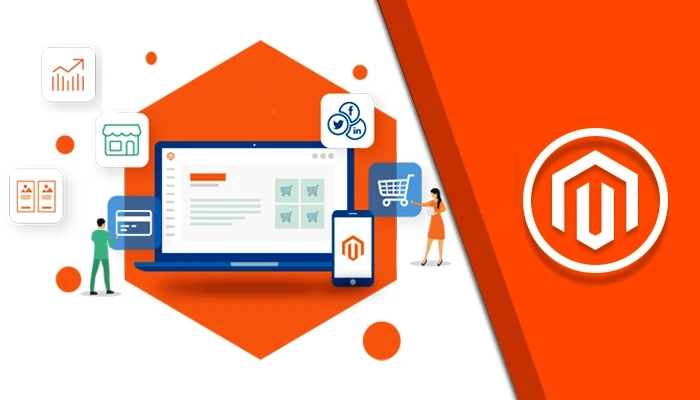Magento is a leading open-source eCommerce platform trusted by businesses of all sizes across the globe. It offers a wide range of features and functionalities to power your online store, from flexible product catalog management to seamless checkout and payment processing.
If you're looking to build a powerful and scalable eCommerce website, then Magento is the way to go. In this article, we'll take a closer look at Magento web development and explore its key features, benefits, and best practices.
Getting Started with Magento Web Development
Before diving into the details of Magento web development, let's take a quick look at what Magento is and how it works.
Magento is an open-source eCommerce platform that provides a range of features and tools for building and managing online stores. It's built on the PHP programming language and uses a MySQL database to store data.
Magento offers two main platforms: Magento Open Source (formerly known as Community Edition) and Magento Commerce (formerly known as Enterprise Edition). While Magento Open Source is free to use, Magento Commerce comes with advanced features and support options but requires a license fee.
To get started with Magento web development, you'll need a few key components:
A hosting platform: You'll need a hosting platform to run your Magento store. There are many options available, including cloud-based hosting providers like Amazon Web Services (AWS), Google Cloud Platform, and Microsoft Azure, as well as traditional shared hosting providers.
A domain name: Once you have a hosting platform, you'll need to register a domain name for your store. This will be the address that customers use to access your store.
An SSL certificate: To secure your store and protect customer data, you'll need an SSL certificate. This will encrypt data transmitted between your store and customers' browsers.
Once you have these components in place, you can begin building your Magento store.
Key Features of Magento Web Development
Magento offers a wide range of features and functionalities to help you build a powerful and scalable eCommerce website. Here are some of its key features:
Flexible product catalog management: Magento allows you to easily manage your products, categories, and attributes through an intuitive admin interface. You can create and edit products, assign them to multiple categories, and define custom attributes.
Advanced order management: With Magento, you can manage orders, invoices, shipments, and refunds from a single dashboard. You can also create custom order statuses and notifications.
Multiple payment and shipping options: Magento supports a variety of payment and shipping options, including popular providers like PayPal, Stripe, and UPS. You can also configure tax rules based on customer location and product type.
Customizable themes and extensions: Magento offers a range of customizable themes and extensions, allowing you to tailor your store's design and functionality to your specific needs.
Scalability and performance: Magento is designed to be highly scalable and performant, even as your store grows in size and complexity.
Benefits of Magento Web Development
Magento web development offers many benefits for businesses looking to build an online store. Here are some of the main advantages:
Powerful and flexible eCommerce platform: Magento provides a wide range of features and tools for building a powerful and flexible eCommerce website.
Customizable and extendable: Magento allows you to customize and extend your store's functionality to meet your specific needs.
Scalable and performant: Magento is designed to handle large volumes of traffic and transactions, making it a great choice for businesses that expect to grow quickly.
Community support: As an open-source platform, Magento has a large and active community of developers and users who provide support and contribute to its ongoing development.
Best Practices for Magento Web Development
To ensure a successful Magento web development project, it's important to follow best practices and adhere to Magento's development standards. Here are some tips to keep in mind:
Use a version control system: Use a version control system like Git to manage changes to your codebase and collaborate with other developers.
Follow Magento coding standards: Magento has its own coding standards, which you should follow to ensure consistency and maintainability.
Optimize performance: Pay close attention to performance optimization, including caching, database indexing, and image compression.
Test thoroughly: Test your store thoroughly before launching, including functionality, security, and performance testing.
Conclusion
Magento web development is a powerful and flexible option for businesses looking to build a scalable and performant eCommerce website. With its wide range of features and functionalities, customizable themes and extensions, and active community support, Magento is a great choice for businesses of all sizes. By following best practices and adhering to Magento's development standards, you can ensure a successful Magento web development project that delivers the best possible experience for your customers.


